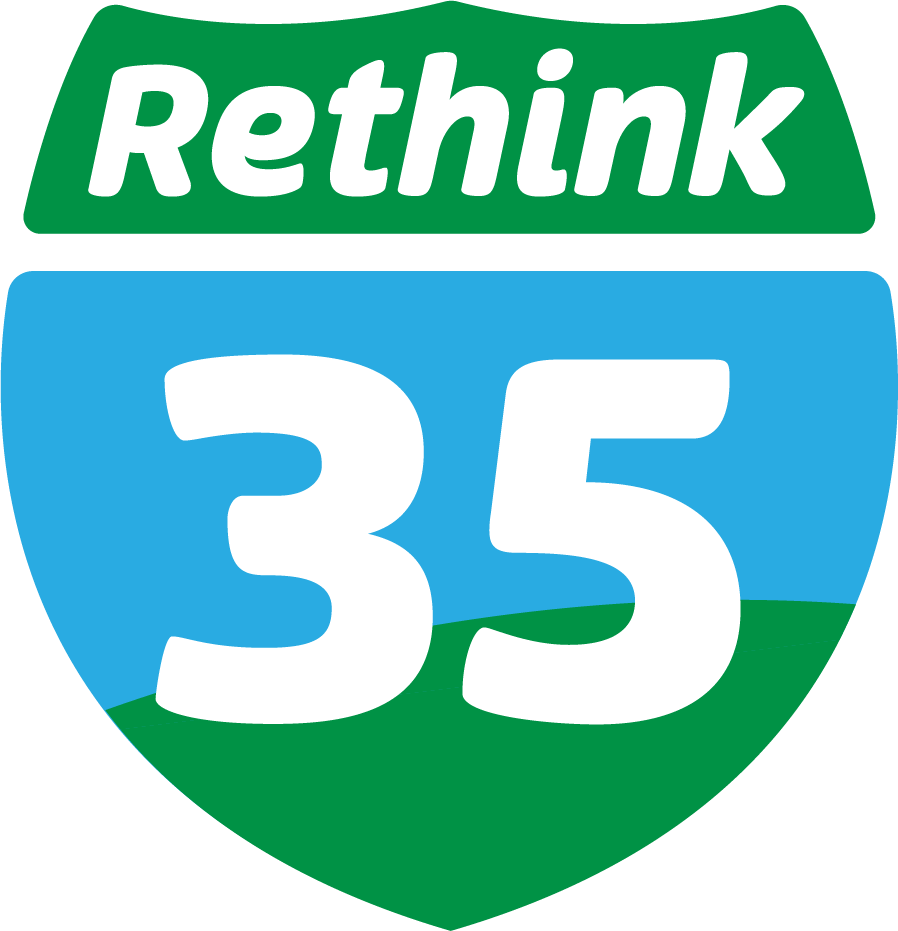How to mitigate the harmful impacts of air pollution on your health
In a previous post, we discussed the health impacts of exposure to air pollution, which may have left you wondering what you can do about it. Here, we’re summarizing the advice published in The Journal of Thoracic Disease in 2015 (https://pmc.ncbi.nlm.nih.gov/articles/PMC4311076/) unless otherwise cited. Note that this is one literature review, and this blog post cannot replace the advice of your doctor or other healthcare provider. It’s also worth noting that the old adage of “an ounce of prevention is worth a pound of cure” holds true here.
Rethink35 believes highway expansions’ impact on human health makes them difficult to justify, especially when other forms of transportation add years to your life rather than taking them away. Unfortunately, since public policy is not currently adequate to protect us, here are some measures that may help.
The steps you take to protect yourself against the harms of air pollution start with getting information. Check air quality ratings in your area regularly. If you have an iPhone, this is part of your weather app, just keep scrolling past the weather. There are several apps available for download as well. Use air quality ratings to guide what activities suit your risk tolerance.
On high pollution days, stay indoors, close the windows, and consider helping the problem by carpooling or taking the bus. If you have to drive, reduce the length of your commute, whether it’s by driving outside of rush hour or taking a shorter route. Driving in a car exposes you not only to fine particulate matter, but also noise pollution, which is associated with cardiovascular disease as well. If biking and walking, try to stay along trails or less busy roads, reducing exposure to pollutants from high-traffic roadways.
Make sure you change your HVAC air filter regularly. A portable air filter may also be helpful if used correctly. Change the filters regularly and make sure you buy a model that is the correct size for the room you plan to put it in. While you want to keep the outdoor pollutants outside, be mindful of indoor sources of exposure as well. Use adequate ventilation when cooking and cleaning, and avoid smoking or vaping, especially indoors.
Avoid moderate to heavy exertion on days with high pollution. Heavy breathing and breathing faster both increase exposure to fine particles. The nose is a better filter than the mouth, so make breathing through your nose a priority. You can use over-the-counter nasal saline sprays to clear congestion if this is an issue for you. But don’t avoid exercise entirely! You need those higher levels of exertion to reduce stress, strengthen your immune system, and your lungs, so make the most of good air quality days! UV increases the reactivity of some pollutants such as ozone, so exercising early morning or late evening when there is less UV radiation may also help reduce exposure.
“Eat food, mostly plants, not too much.” Michael Pollan’s advice on a healthy diet keeps us healthy and more resilient against the effects of air pollution. Research shows that eating a diversity of foods that contain antioxidants and essential vitamins may reduce oxidative stress and inflammation induced by air pollution (Péter et al., 2015).
Below is one example of what I eat:
Ultimately, these are all very personal decisions. For some, the benefits of exercise and time outdoors on high-pollution days may outweigh the risk of exposure to air pollution. I count myself among those people.
While these suggestions may help, they are no substitute for advocating for public policy that benefits the health of all. If you care about your health, there are many ways to get involved. Contact your local, state and federal representatives. Volunteer with us or another grassroots organization. Donate to conservation groups, pro-transit groups and those resisting highway expansions.


